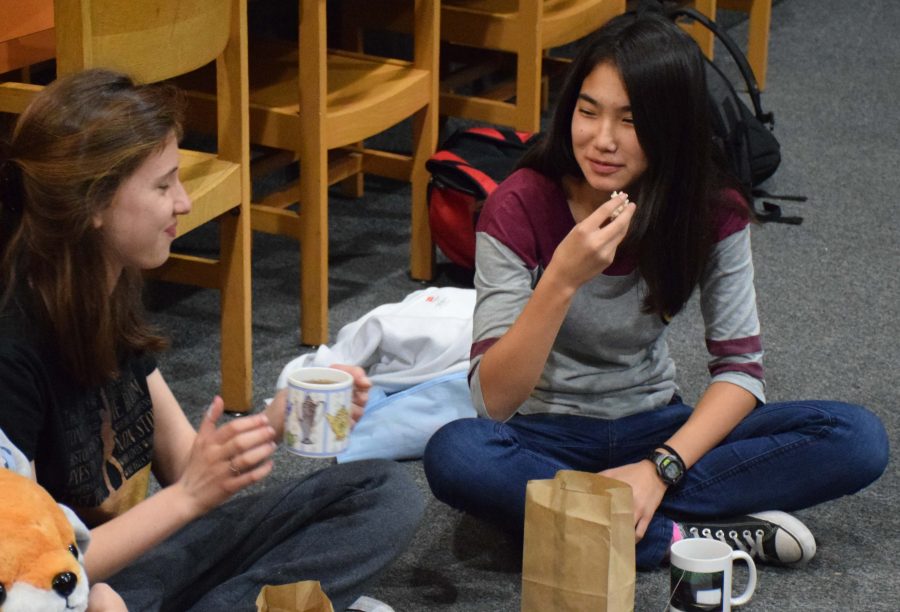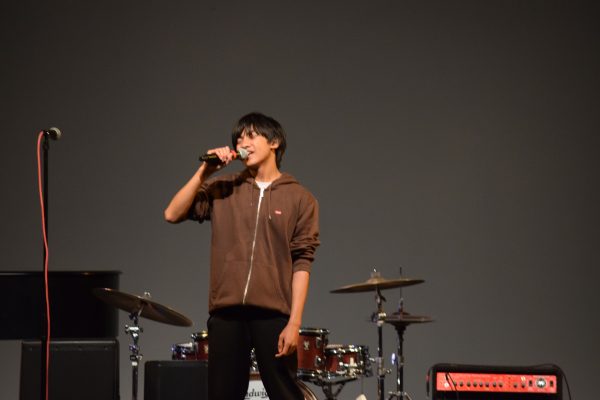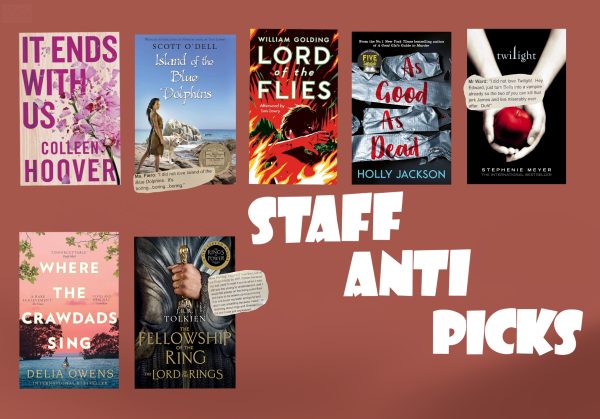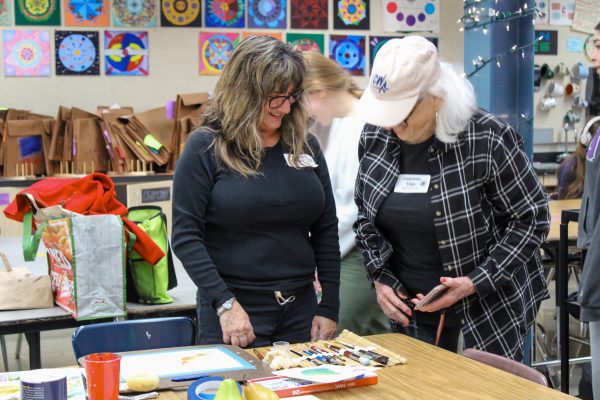Writing Project Empowers Female Voices
Aislinn Welch shares dinner with other members of the meeting.
January 31, 2017
The first meeting of Writing Without Rules convened on January 24 to promote writing with a catch: it was exclusively for girls. The group focused mostly on fiction writing and poetry.
“There are rules to writing and it crushes the creative side,” said librarian Sarah Morgan. “Most of what we do is non-fiction writing, like essays and research papers. This focuses on what comes from the inside; it gives our girls a chance to be creative.”
The meeting started with icebreaker exercises to introduce the members, after which they addressed a writing prompt: “I need to tell you something.” Some responses were crafted as non-fiction stories while others took the form of poetry.
“Personally, I wrote a piece to someone that I knew,” said Morgan. “It helped me realize that our students have an immense imagination and an innate ability to express themselves.”
While chief organizer Elizabeth Perlman of the Intuitive Writing Program, an organization dedicated to encouraging women to write, acknowledged that the gender ratio was skewed dramatically, she justified this as necessary to avoid distractions.
“Girls have to silence or edit themselves, and there is great pressure for them to be ‘perfect’,” said Perlman. “I work primarily with girls, but I also want to work with boys, because I believe they also feel pressure too and should express themselves.”
When Perlman reached out to Morgan and Athya Uthayakumar, president of the Poetry Club, as part of a community outreach program, the idea gained momentum.
“I created this program that I wanted when I was a teenager,” said Perlman. “I felt like I was invisible. We offer free programs, events to connect the community.”
Perlman and the organizers cited what they say is a pervasive societal influence on women that negatively affects their development. This was seen as an opportunity to not only encourage writing, but to also help female authors conquer social stereotypes.
“Females grow up with different societal expectations,” said Uthayakumar. “It’s good to express your voice.”





